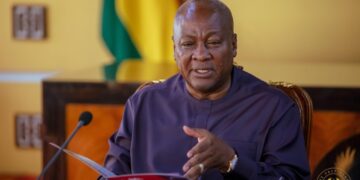Ms Abigail Edem Hunu, a Programme Assistant of the United Nations Population Fund (UNFPA) Program Assistant, has urged parents to encourage their children, especially girls, to say no to sexual assault and inappropriate physical contact.
She said it was sad that children in many parts of Africa, including Ghana, were educated from an early age to be unnecessarily supportive of adults and to refrain from voicing their opinions.
Ms Hunu explained that this rendered it impossible for children to refuse questions from adults regarding their own bodies, even though the inquiry was intended to have a negative impact on their lives.
She provided the advice at a five-day sensitisation workshop in Accra organized by the UNFPA and the Ministry of Gender, Children and Social Protection to train market women and men as paralegals to offer assistance and encouragement to individuals who required legal, psychosocial, and counseling help on issues that influenced their lives.
Ms Hunu advised men to try to restrain themselves when it comes to physical activities with women and to value their views in order to avoid breaking the law’s against defilement and rape.
“You won’t be willing to argue that the woman’s clothing enticed you to take advantage of her. Will you try to sleep with your mother if you see her naked? unless you have a psychiatric illness, you won’t. You know that’s your mother in your head, so you won’t do it.
“In the same way, you must remember that you cannot sleep with anyone until they have granted you their approval or permission,” she said.
Slapping, punching, pushing, choking, skin spitting, restraining, usage of arms, forced labor, lack of nourishment, acid pouring, strangling, and hair pulling are all examples of domestic abuse, according to Madam Afua Brown-Eyeson, a legal practitioner.
Denials of household money, ownership of possessions and expenditure choices, and stopping a spouse from utilizing her wealth or financial resources for her own growth and development, she said, were all actions of domestic abuse.
Related Article: Let us safeguard children’s healthy development – – MoGCSP
Other instances involve depriving a spouse of some means of revenue, seizing or borrowing partner money, denying partner and family financial needs, harming or losing another’s belongings, and pressuring someone to operate against their will.
Mrs. Melody Darkey, a legal practitioner who is guiding the trainees through the consultation phase as paralegals using an Alternative Dispute Resolution method, explained that the first move is to make an introductory comment on the intent of the meeting.
The remaining tasks included allowing parties to share their stories, defining problems/prioritizing issues and priorities, finding solutions/innovative problem solving, and reaching a resolution and closing the lawsuit.
She urged them not to be biased or take sides when performing their duties as paralegals in order to elicit cooperation from both stakeholders and achieve gratification at the end of the procedure.
Mrs Darkey advised them against attempting to solve court proceedings at home, such as robbery, murder, defilement, incest, and other types of physical assault.
She requested that they guide parties to seek advice from relevant agencies, such as the police, when dealing with such issues.
Ms Gloria Kankam, a Gender Expert, urged the trainees and the general public to stop acting like oppressive gatekeepers and to respect the unity that their families had achieved over the distribution of the deceased’s property.
She reminded them of their responsibility to help deter, defend, investigate, and work with relevant bodies to protect the interests of society’s most marginalized members.
SOURCE: ATLFMONLINE


























